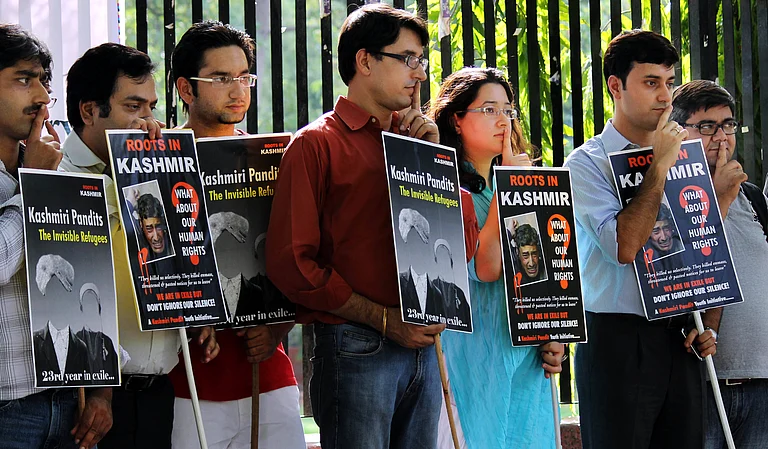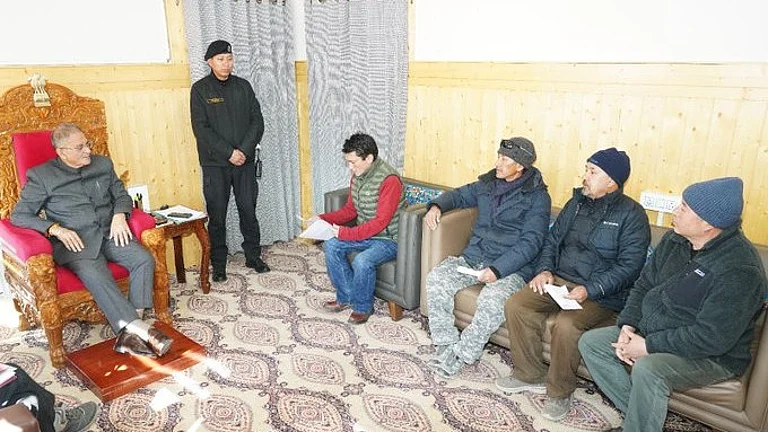In Kashmir, politics has become a tricky affair. The recently concluded elections are the biggest proof of this. For nearly a decade, the absence of any political activity—from both the “mainstream” and the “resistance” camps of politics—had led to suffocation of political voices, particularly in the Kashmir region. The Assembly elections—held after a decade—broke the long spell of political strangulation. Although electoral politics can by no means be a constitutive part of what can be referred to as ‘politics’—at least in the case of Kashmir, as politics here takes a different form altogether—it serves as an alternative to help people navigate the challenges of daily life.
The decade-long phase of almost zero political activity and the Abrogation of Article 370 in 2019 also coincided with the introduction of many forcible changes to alter the very design of the Kashmiri society. Apart from making changes in the land laws, restricting media freedom, delimiting constituencies in a doubtful manner, and making Kashmir vulnerable to a larger corporate expansion, the possibilities of a large-scale demographic change and assimilatory tactics are imminent in the current circumstances. Of course, the list of the actions carried out by the Union government is not exhaustive; the strategies of control over Kashmir have only grown manifold.
New Challenges
A few weeks ago, when the Election Commission of India made the announcement of conducting Assembly elections in Jammu and Kashmir, the mainstream parties found a way to regain their lost relevance as the most potent weapon of their arsenal—Article 370—now lay in the annals of history.
While the Peoples Democratic Party (PDP) made an attempt to sell the narrative of ‘Kashmir resolution’ to the voters—which was an ambiguous demand and not within their jurisdiction—the National Conference (NC) promised their voters the restoration of autonomy, Articles 370 and 35A, the state constitution and the flag, if voted to power.
With a resounding mandate that the NC got from the Kashmir region, their demands, however, now seem to have crumbled in front of the powerful Bharatiya Janata Party (BJP) at the Centre. While the NC supremos—Farooq Abdullah and Omar Abdullah—seem ready to sideline their demand for the restoration of Article 370, the issue of the return of ‘statehood’ may well be considered a major victory, if granted.
The lull created after Abdullah’s meeting with BJP leaders in New Delhi is also suggestive of the acceptance of the status quo by the NC as at major junctures in Kashmir’s history, the party has played its role in legitimising even the resolve of bilateral and international issues domestically. Therefore, for a populace tormented by political uncertainties, electoral politics can be nothing short of a violent phenomenon that renders them effectively helpless in the face of a powerful Centre.
An Equivocation of Sorts
The demand for restoration of statehood should be construed as a demand for restoration of powers to the current government. The current phase of the so-called mainstream politics is a period of great crisis as the UT government is finding it difficult to carry out administrative duties.
The Abdullah-headed government resembles an “emergency administration” headed by a permanent Lieutenant of the Union who has more powers than the elected government and can very well run a parallel government with the resources he has and the structure he has built over the past few years heading the state.
Referring to the revocation of Article 370, Abdullah recently made a statement saying that what has been taken by the BJP cannot be demanded from them. In such a situation, Abdullah may think he is treading smartly by restricting his demands to the restoration of statehood, but his cowering down to the BJP will only legitimise the 2019 actions of the BJP and will take Kashmir to the point of no return.
Abdullah went on to demand the restoration of statehood in its “original form,” which is ambiguous and hardly frames the demand for the restoration of sovereignty to Kashmir. The fault lies in the fact that admission to the restoration of the basic powers to the anticipated state government does not guarantee the initiation of any political process capable of providing a meaningful political intervention.
The Demand for ‘Statehood’
It is by now clear that with or without statehood, Kashmir will continue to remain an administrative state which will be expected to cater to the basic needs of the people and not demand anything more that is ‘political’ in nature.
What constitutes political in Kashmir is the redressal of the long-term demands of justice to every group that has suffered in the region in the ongoing war, and a successful demand for the restoration of statehood does not guarantee that even an ounce of justice will be served to the people of Kashmir.
The grant of statehood from a powerful Union government will serve as a symbolic gesture, foreclosing the redressal of the demands of autonomy and a resolution for long-term peace in the region articulated by Kashmiris themselves. The NC’s demand for statehood, of course, attends to short-term orientations such as giving its voter base something to celebrate and getting back slight powers, but in the long term, it serves as a diversion from what they have stood for historically.
The demand for restoration of statehood is, at best, an apolitical demand and is predicated upon giving the newly formed government more powers rather than restoring the Kashmiri sovereignty. It must also be made clear that the demand for statehood in Jammu and Kashmir is not similar to any other state in India as J&K is entangled in a conflict and its parts are controlled by three major powers of Asia and the unification of the state in its original form has been a long-term demand of the different stakeholders of the issue. In such a scenario, accepting statehood or restricting demands to statehood will surely set a bad precedent for the future of politics in J&K.
(Views expressed are personal)
Aurif Muzafar is a Kashmiri lawyer and writer. He is currently a doctoral fellow at NALSAR University of Law, Hyderabad.





















